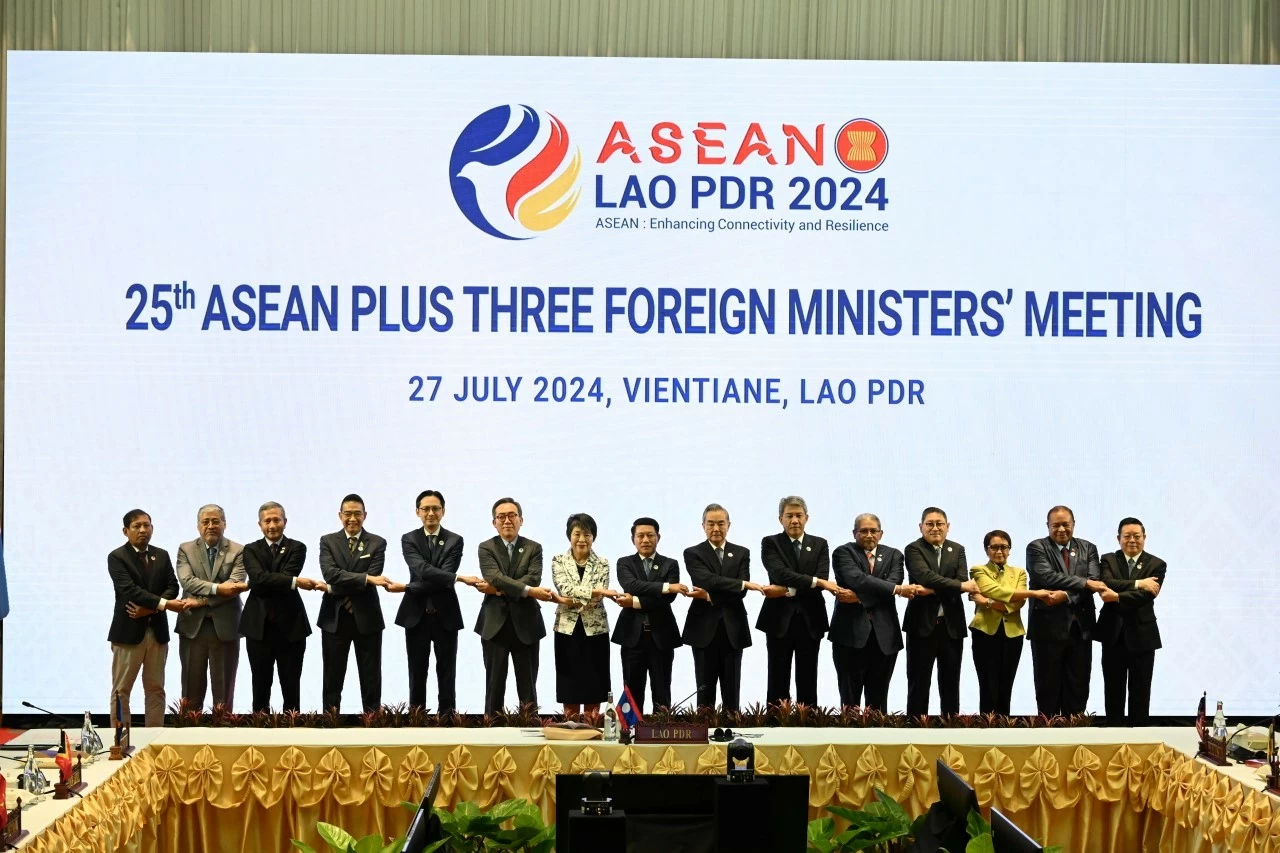 |
| Authorized by Foreign Minister Bui Thanh Son, Deputy Minister Do Hung Viet, Head of Vietnam ASEAN SOM, led the Vietnamese delegation to attend meetings within the framework of the 57th AMM. |
The meetings include the ASEAN-US Foreign Ministers’ Meeting, ASEAN+3, East Asia Summit (EAS) and ASEAN Regional Forum (ARF). Authorized by Foreign Minister Bui Thanh Son, Deputy Minister Do Hung Viet, Head of ASEAN SOM Vietnam, led the Vietnamese delegation to the meeting.
The ASEAN-US Foreign Ministers' Meeting welcomed the positive developments in bilateral relations in recent times, especially the progress in implementing the 2021-2025 Action Plan reaching a high rate of 98.4%, the US continues to be the largest FDI investor and the second largest trade partner of ASEAN.
US Secretary of State Antony Blinken affirmed that the United States attaches importance to its relationship with ASEAN, considering it a focus of the US Indo-Pacific Strategy, and pledged to support ASEAN's central role and the ASEAN Outlook on the Indo-Pacific.
The countries agreed to step up coordination in responding to common challenges, promote cooperation for security, prosperity, self-reliance and connectivity, focusing on prioritizing trade, investment, energy, cyber security, health, environment and climate, science and technology cooperation, digital transformation, artificial intelligence governance, etc.
The ASEAN+3 Foreign Ministers' Meeting ( with China, Japan and South Korea) welcomed the encouraging progress in cooperation in recent times, in which the implementation rate of the ASEAN+3 Cooperation Work Plan for the 2023-2027 period reached nearly 50% after only 18 months of implementation.
The countries agreed to continue to coordinate to deepen existing areas of cooperation, especially in trade, investment, finance, transnational crime prevention and non-traditional security challenges, tourism, science and technology, education, and people-to-people exchange, while emphasizing the need to strengthen regional financial stability mechanisms and expand cooperation in new areas such as innovation, digital transformation, electric vehicles, energy, and green growth.
The East Asia Summit (EAS) Foreign Ministers' Meeting supported the ASEAN 2024 theme of Promoting Connectivity and Resilience, emphasizing that in the context of the world and the region witnessing rapid and unpredictable changes, the EAS needs to continue to further promote its role as a forum for Leaders on strategic issues affecting peace, security and prosperity.
The countries agreed on the need to coordinate to effectively exploit the great cooperation potential of EAS, emphasizing the effective implementation of the EAS Action Plan for the period 2024-2028, focusing on potential areas that ASEAN is interested in and EAS Partners have strengths in such as trade, investment, digital transformation, energy transformation, green transformation, climate change response, towards sustainable development.
Within the framework of the ASEAN Regional Forum (ARF) , countries continued to affirm that ARF is the leading forum in the region for exchange and dialogue on political and security issues, agreeing on the need to maintain goodwill dialogue, promote trust building and preventive diplomacy, and improve the effectiveness of ARF operations to effectively and promptly respond to emerging challenges, including traditional and non-traditional challenges.
The conference approved a list of activities for the 2024-2025 mid-term, with nearly 30 activities in areas such as climate change response, disaster relief, cyber security, maritime security, etc. In particular, Vietnam will co-organize a number of activities such as implementing the 1982 United Nations Convention on the Law of the Sea (UNCLOS 1982) and the Women, Peace and Security (WPS) Agenda.
As co-chairs of the ARF Inter-Sessional Group on Disaster Relief, Vietnam, Bangladesh and Sri Lanka proposed and the Conference approved the extension of the ARF Work Plan on Disaster Relief for the period 2024-2027. On this occasion, the Conference also adopted the ARF Statement on Strengthening Regional Cooperation on Ferry Safety, co-sponsored by China, Vietnam, Cambodia, Laos, Myanmar, Thailand, and Singapore.
At the Conferences, countries spent a lot of time exchanging and sharing views and positions on international and regional issues of common concern such as the East Sea, Myanmar, the Middle East, the Korean Peninsula, and the Russia-Ukraine conflict. Countries shared concerns about the complicated developments on the ground and their impact on peace, security, stability and development, expressed support for ASEAN's balanced and objective approach, and emphasized principles such as compliance with international law, self-restraint, and peaceful settlement of disputes in accordance with international law, including the 1982 UNCLOS.
Speaking at the Conferences, Deputy Minister Do Hung Viet welcomed ASEAN-led mechanisms such as ASEAN+1, ASEAN+3, EAS and ARF to continue to promote their roles and strengths, achieving many important results. In the face of current complex and unpredictable movements, the Deputy Minister suggested that countries continue to support ASEAN's central role, work with ASEAN to respond to common challenges, promote dialogue, cooperation and trust, build an open, transparent, inclusive and rule-based regional structure. Regarding some specific areas of cooperation, the Deputy Minister suggested further facilitating investment and trade, effectively utilizing FTAs and other trade agreements in the region, maintaining a self-reliant and sustainable supply chain, prioritizing enhanced connectivity, digital transformation, energy transformation, green growth, climate change response, narrowing the development gap and sub-regional cooperation.
Deputy Minister Do Hung Viet affirmed Vietnam's consistent stance, calling on partners to support and respect ASEAN's stance on the East Sea issue, especially in the face of current complicated developments, as well as ASEAN's efforts in building the East Sea into a sea of peace, stability, cooperation and sustainable development. The Deputy Minister also emphasized the need to create a favorable environment for effective and substantive negotiations on the Code of Conduct in the East Sea in accordance with international law, especially the 1982 UNCLOS, while continuing to fully and effectively implement the Code of Conduct of Parties in the East Sea (DOC).
*At the end of the Conference series, the ASEAN Foreign Ministers adopted the Joint Communiqué of the 57th ASEAN Foreign Ministers' Meeting, consisting of 165 paragraphs, fully and comprehensively reflecting the discussion content on the process of building the ASEAN Community, ASEAN cooperation on each Community pillar, ASEAN's foreign relations and international and regional issues. The Lao President issued the Chairman's Statement of the ASEAN+1, ASEAN+3, EAS, and ARF Foreign Ministers' Meetings.
Source



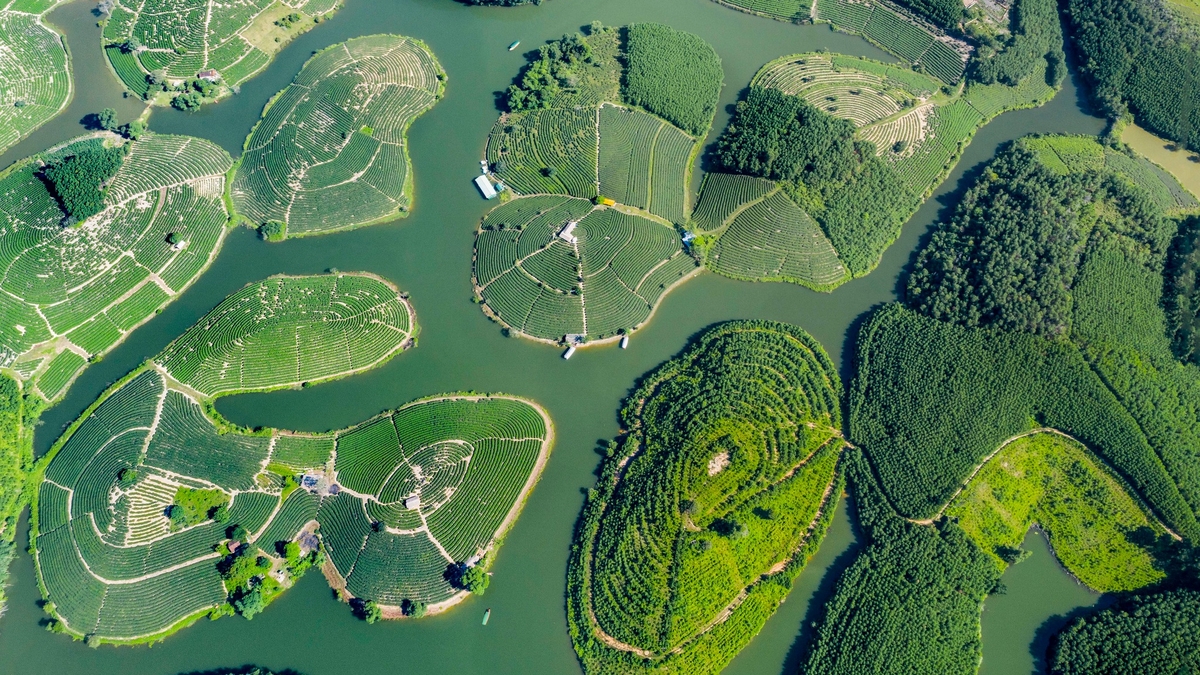
![[Photo] Vietnam and Sri Lanka sign cooperation agreements in many important fields](https://vphoto.vietnam.vn/thumb/1200x675/vietnam/resource/IMAGE/2025/5/5/9d5c9d2cb45e413c91a4b4067947b8c8)



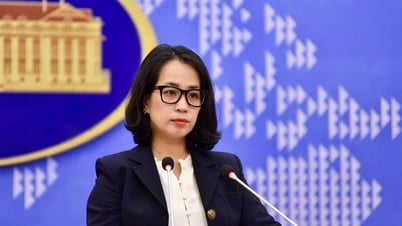



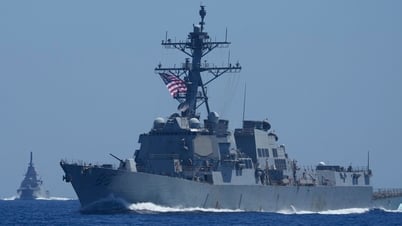






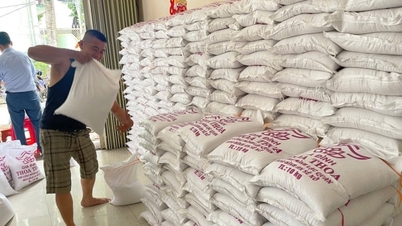

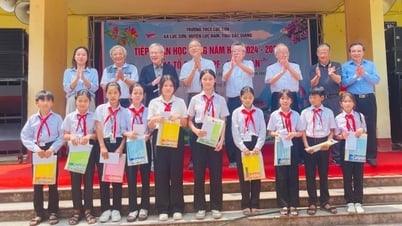
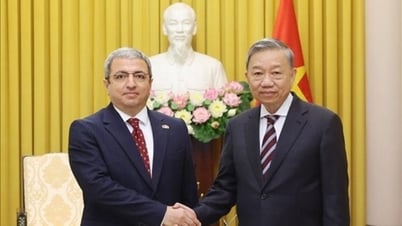





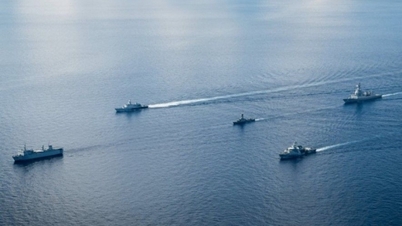





![[Photo] President Luong Cuong and Sri Lankan President Anura Kumara Dissanayaka visit President Ho Chi Minh relic site](https://vphoto.vietnam.vn/thumb/1200x675/vietnam/resource/IMAGE/2025/5/5/0ff75a6ffec545cf8f9538e2c1f7f87a)
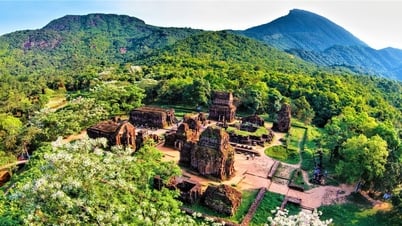

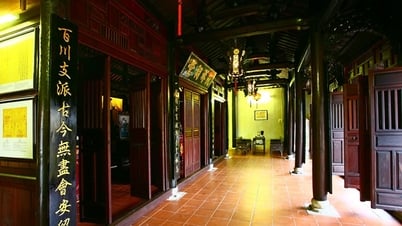







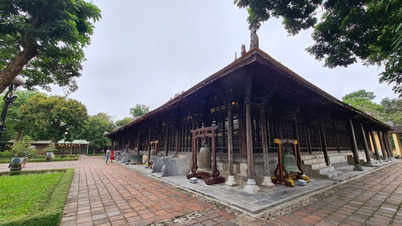

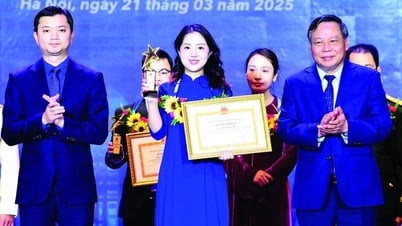

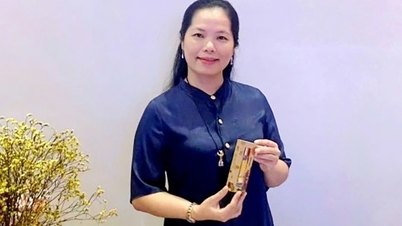





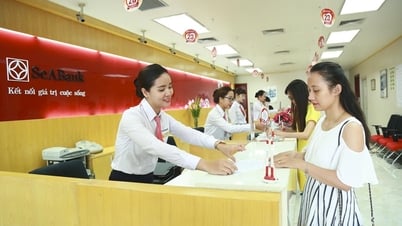





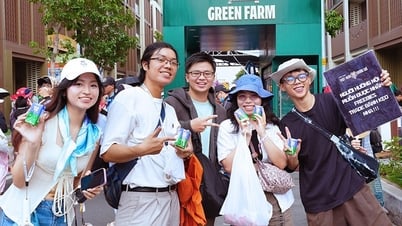


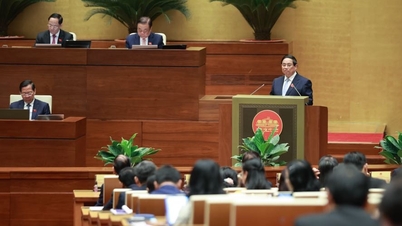

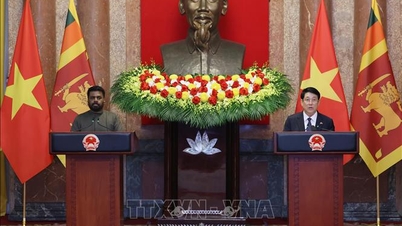
![[Photo] President Luong Cuong presided over the welcoming ceremony and held talks with Sri Lankan President Anura Kumara Dissanayaka](https://vphoto.vietnam.vn/thumb/402x226/vietnam/resource/IMAGE/2025/5/5/351b51d72a67458dbd73485caefb7dfb)

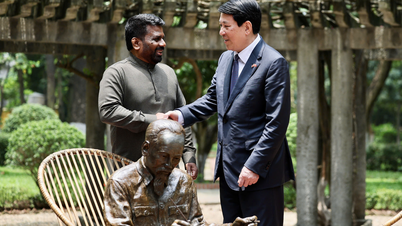
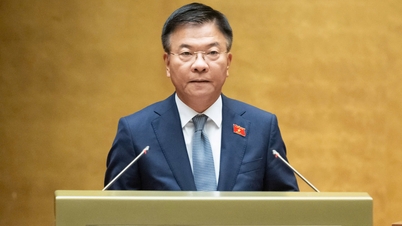








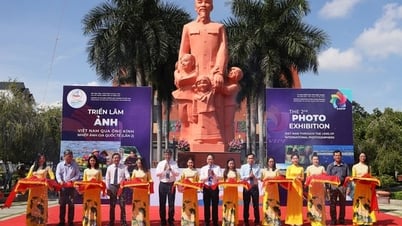


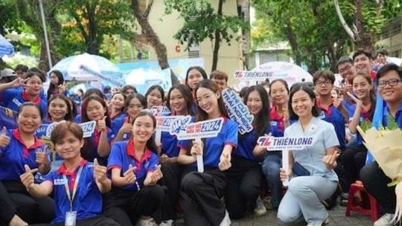








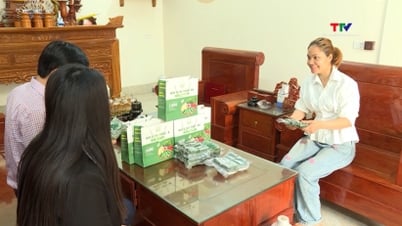

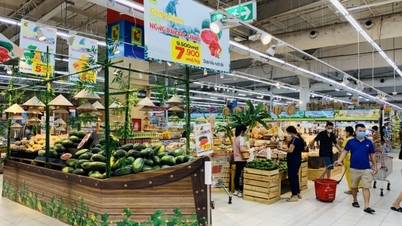

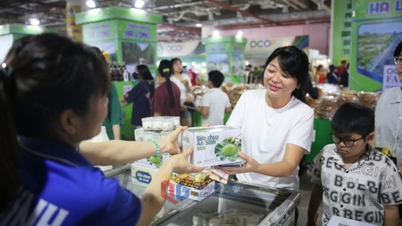





Comment (0)